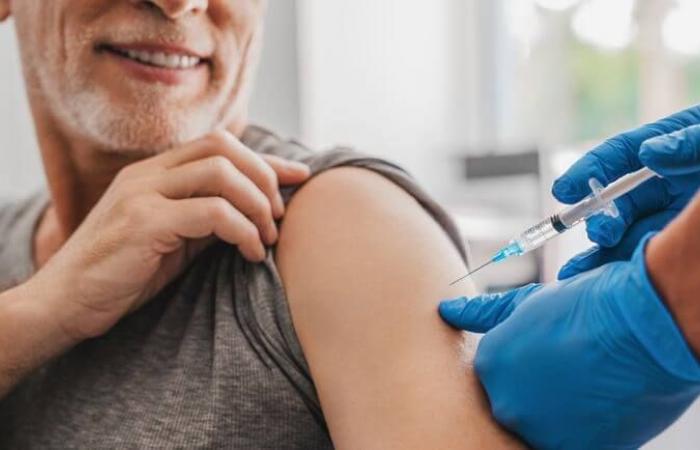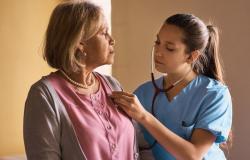Résumé
A decree published in Official Journal of October 23, 2024 defines the conditions for vaccination against Mpox and more particularly:
- people who can be vaccinated with Mpox defined in the recommendations of the High Authority for Health (HAS) and the High Council for Public Health (HCSP);
- vaccines to use:
- IMVANEX suspension injectable,
- JYNNEOS suspension injectable en flacon.
- purchase, importation (for JYNNEOS), storage and distribution (free) under the responsibility of Public Health France (SPF);
- the places of vaccine administration: all health establishments, free information, screening and diagnosis centers (Cegidd), authorized establishments and organizations, as well as community pharmacies designated by the regional vaccination agency health ;
- health professionals authorized by derogation to prescribe and/or administer vaccines under certain conditions: retired nurses and doctors, nursing or medical students, pharmacy technicians;
- the fixed remuneration fixed by derogation for several categories of health professionals.
Between 1is January and October 29, 2024, 195 cases of Mpox were reported to SPF and only clade II Monkeypox viruses were detected by the Orthopoxvirus CNR.
Un order published in Official Journal from October 23, 2024 [1] repeals the decree of July 2022 relating to vaccination against Mpox (formerly monkeypox) and updates the terms of this vaccination.
Who is affected by this vaccination?
Can be vaccinated “people at risk of exposure” to the virus and/or having had “an identified risk contact” defined in the recommendations of the High Authority for Health (HAS) [2] and the High Council for Public Health (HCSP) [3] (cf. Boxes 1 and 2).
The two vaccine strategies recommended in 2022 (for prevention and post-exposure), which were renewed by the HAS at the beginning of September 2024, are therefore still relevant (cf. our article of September 5, 2024). The only modification introduced at the beginning of September 2024 concerned people vaccinated during the 2022 campaign who must receive a booster dose.
A map of centers operational staff, in charge of this vaccination campaign in the territory, is regularly updated. The objective is to vaccinate the target population by the end of 2024.
| Preventive vaccination is recommended in:
Travel in such an active traffic area is not recommended among the children and pregnant/breastfeeding women car :
All travelers must apply barrier measures:
|
Box 2 – Reactive vaccination
Reactive vaccination is aimed (ideally within 4 days of the first risky contact and at the latest within 14 days):
- to people who have had risky contact;
- to immunocompromised people who have had close contact with a contact person at risk.
A contact is considered at risk when there has been (without effective protection):
- prolonged contact (without notion of duration) with broken skin or body fluids of an infected person ;
- contact with utensils, surfaces and fabrics touched by the person.
Sexual intercourse is still considered “unsafe” with or without condom.
What vaccines?
Two so-called “third generation” vaccines produced by the Danish firm Bavarian Nordic can be used (cf. our article of June 2, 2022):
These live vaccines are derived from the highly attenuated viral strain, modified vaccinia Ankara virus of Bavarian Nordic (MVA-BN). They have the advantage of being non-replicative (that is to say they cannot multiply in the human organism).
These two vaccines are very similar in terms of effectiveness and safety profile.
Who provides the vaccines?
Public health France (SFP) and/or the army health service are responsible for purchasing, importing (for JYNNEOS), storing vaccines and making them available for free.
In addition, SFP ensures the delivery vaccines in different locations where they can be administered that’s to say :
- pharmacies for indoor use which have the possibility of supplying:
- THE health facilities,
- free information, screening and diagnosis centers (A mouthful),
- THE establishments et organisms empowered.
- THE pharmacies d’officine volunteers and designated by the director general of the regional health agency according to different criteria.
An exemption for certain health professionals
An exemption authorizes the following healthcare professionals to prescribe and/or administer vaccines:
- retired doctors are authorized to prescribe and administer them;
- retired nurses are authorized to administer them on medical prescription and to prescribe them if they have followed the training required during their activity;
- nursing students who have validated their 1re year of training, students of 2e cycle of medical studies, students of 2e et 3e years of 1is cycle of medical studies in the presence of a doctor or nurse;
- pharmacy technicians provided they have received appropriate training and under the supervision of a pharmacist.
Furthermore, the decree specifies that: “ Health establishments which provide vaccination against the monkeypox virus and which use the participation of these professionals for this campaign will be able to benefit from fixed compensation paid by Health Insurance. ».
Remuneration per hour, per half-day of activity or per act
Doctors, nurses, students…
Health professionals who participate in this vaccination campaign “ in a collective setting outside the usual conditions of exercise or outside their service obligation » are paid according to an hourly rate (cf. Tableau 1) or half-day (cf. Tableau 2).
| Between 8 a.m. and 8 p.m. | Between 8 p.m. and 11 p.m. or between 6 a.m. and 8 a.m. | Between 11 p.m. and 6 a.m. or Sunday/public holiday | |
| Nursing students | 12 euros | 18 euros | 24 euros |
| Students in 2e cycle of medicine and retired nurses | 24 euros | 36 euros | 48 euros |
| Students in 3e medical cycle and retired doctors | 50 euros | 75 euros | 100 euros |
| Intervention less than 4 hours excluding weekends – hourly rate | Intervention less than 4 hours Saturday afternoon/Sunday/public holiday-time package | Half day of 4 hours minimum excluding weekends | Half day of 4 hours minimum Saturday afternoon/Sunday/public holiday | |
| Liberal doctors or in a health center | 80 euros | 105 euros | 320 euros | 420 euros |
| Liberal state-certified nurses | 42 euros | 54 euros | 162 euros | 216 euros |
…and community pharmacists
Pharmacists working in duly designated pharmacies can invoice an amount of 9.61 euros for the prescription and administration of one of the two vaccines, an amount fully covered by health insurance.
Traceability and pharmacovigilance
Finally, vaccine traceability is ensured by the pharmaceutical establishment of the National Public Health Agency. The National Agency for the Safety of Medicines and Health Products (ANSM) is responsible for implementing reinforced pharmacovigilance.
Key figures of the epidemic between January and the end of October 2024
As of October 29, 2024195 cases of Mpox have been declared to SPF since 1is January 2024, including 5 over the last 7 days [4] :
- almost half of the cases (n=93; 48%) said they did not know if they had had risky contact with a case of Mpox in the 3 weeks preceding the first symptoms;
- 44% of infected people (n=85) resided in the Île-de-France region;
- only clade II Monkeypox viruses were detected by the Orthopoxvirus CNR;
- these are only adults including 188 men and 7 women.






